From Muslim to Bishop
THE BISHOP FASINA STORY
“God the giver of all gifts is to be praised, adored, worshipped, revered, honoured and glorified forever and ever” – Bishop Fasina.
Birth
Bishop Albert Ayinde Fasina was born at Oke Odolewu-Ijebu to the family of Disu Magaji Fasina Mabadeje and Morinat Mabadeje (nee Akadiri) on July 8, 1939. His father, Magaji Fasina Mabadeje was the son of an Imam who had converted from the Ifa traditional religion to Islam.
Early School years
Bishop Fasina Started his education at St. Mary Catholic School, Oke Odolewu where he completed infant 1 and 2 as well as standard 1 and 2 classes. He continued at Itamapako Central School to complete standard 3 and 4 at the time when Baba Oresegun (father of Rev. Fr. Gabriel Oresegun was Headmaster). He later proceeded to St. Patrick School, Isiwo for his Standard 5 and 6 classes..
In all of these, he and his other siblings had to attend the quranic school (ile kewu) at 6.30am every day before going to school at 8.am. This was not negotiable as far as their father was concerned. Here Bishop Fasina learnt the quranic recitations to advanced levels.
At this point, His older brother Mr. Rahman Olaitan came to take him to live with him in Lagos. There, He repeated the standard 6 class. He later returned to Isiwo to attend the Isiwo Modern School managed by the Catholic at the time. Mr. G.O. Sobande was the Principal at the time.
Following the completion of his standard 6 class, the young Ayinde Fasina was posted on probational teaching. This he did for three years. He spent two of the years at the Lepia Roman Catholic Mission (RCM) Village group of schools, (Lekki Sea coast communities) and 0ne year at the RCM School, Igbodu, in the Epe area of Lagos State.
Conversion to Christianity
The young Ayinde Fasina had been very attracted to Christianity right from His early elemenrary school days even as he attended his early morning quranic classes. He was attracted to the colour and witness of life of the “white” (oyinbo) missionaries who visited his village church that was directly opposite his father’s house. All his catholic school interactions and experiences with catholic Christianity made him resolve to convert from Islam to Christianity. But he was held back from Baptism because of the missionary policy that children were to be baptized only with the expressed consent of their parents. His father did not give his consent for a long time. However, while he was a probational teacher in Igbodu, his father finally gave a letter of consent and the young Ayinde was baptized a Catholic and took the name Albert on Sunday April 18, 1958. He received his first Communion the next day Monday April 19, 1958 St. Michael Catholic Church, Molajoye, Epe area of Lagos State.
Teaching Career
In 1959, Albert Fasina was admitted into St. Mark Teachers’ College, Iperu (now the compound of the National Missionary Seminary) Iperu where he completed his grade three certification. With his new qualification, he was posted to St. Luke Catholic School Oki-Gbode as teacher and Headmaster. The whole of the Itasin-Imobi area was then under the Ibonwon Catholic parish. He was transferred from there in to the Regina Mundi Catholic parish, Mushin , Lagos. He served as the Headmaster at the Parish school named St. John Catholic school located in Oshodi.
Mission Boy Days
While he was headmaster at the parish school, the late Archbishop Aggey was Auxiliary Bishop and Parish priest at the Regina Mundi Parish Mushin. The young Albert Ayinde Fasina came to the mission house every weekend to help Archbishop Aggey with office work and took care of all his correspondences and gradually began to assist in pastoral work too. It was in this parish that Albert Fasina was introduced to the Legion of Mary society. According to Bishop Fasina, his involvement with the Legion of Mary deepened his knowledge and practice of the Catholic faith.
The young Albert Fasina decided to pursue his education further and enrolled at St. Joseph College Surulere for his grade 2 certification. This was when Archbishop Aggey requested him to take up full residence in the mission house to live with Fr. Fitzgerald who had some health challenges at the time. Albert Fasina further lived with and served as a lay pastoral help to subsequent parish priests in the mission house including Fr. Joseph Carew, Fr. Eddie Hartnet and Fr. Martin Costelo who was in residence at the parish.
Vocation
His consciousness of the call to the priesthood came when he was a mission boy at the Regina Mundi Parish. As a very ardent Legionary, school teacher and headmaster, mission boy and Sacristan, so many of the the priests that came across him kept suggesting that he considers a vocation to the priesthood. He recalls Rev. Fr. Terence who was working in Ado-Odo at the time strongly asking questions about this possibility in one of his car rides with him. Rev. Fr. Dan “Olufemi” Burke also supplied a host of Catholic literature to help the young Albert in his discernment process. His Legion of Mary Handbook further nourished his Zeal. The late Rev. Fr. Alfred Ajayi also invited him to consider a vocation to the priesthood when he came to spend some time at the Regina Mundi parish for his first leave shortly after his own ordination to the priesthood. Bishop Fasina recalls one of the most striking influences on his decision was when Archbishop Aggey travelled to Rome and sent him a letter and a card from Rome saying he was praying for him to make a discernment for the priesthood in all the holy places he was visiting on his pilgrimage.
Days Seminary
In January of 1973, Albert Fasina took a final decision to consider a vocation to the Catholic Priesthood. Rev. Fr. Hartnet drove him to the Seminary of Saints Peter and Paul, Bodija Ibadan going first through Ijebu-Ode to say goodbye to his elder sister, the late Alhaja Hadijat Kuburat Abdul. While in the Seminary, he was popularly called “bros” because of his older age. In his seminary days, he served as a libriarian, Sacristan and a floor prefect. He continued in the seminary as a very strong member of the Legion of Mary. The late Rev. Msgr. Patrick Ugboko was his Rector succeeded by the Now John Cardinal Onaiyekan. Msgrs Aniagwu, Adigwe, Olawunmi and Adesina were some of his lecturers in the seminary at the time.
Ordination and Early Priesthood
On March 8, 1980, Albert Fasina was ordained to the Catholic Priesthood by the late Most Rev. Anthony Saliu Sanusi along with Msgr. Victor Ajayi. Shortly after his ordination, he was as assigned as an assistant to Fr. Francis Odufuye in Iperu parish. Msgr. Gabriel Ayankoya took over as parish priest a few months after. The young Rev. Fr. Albert Fasina served under Msgr. Ayankoya for one year and three months. While serving in Iperu, Msgr Ayankoya while still parish priest, joined the promotion and formation team of the newly founded National Missionary Society of St. Paul (MSP).
The young Fr. Albert had to do more of the parish work. In no long a time, Bishop Sanusi also sent he himself for training as a formator and spiritual director and confessor to serve at the MSP Seminary combined with his parish work. As a young priest, he also served as the Catholic Women Organisation (CWO) chaplain. All of these he did without a car for nine months. He attended to all of his assignments boarding the “bolekaja” public transport and taxis.
He was transferred to St. Sebastian Cathedral late in 1981 to take over as the Cathedral Administrator from Msgr. Sylvester Adekoya who was proceeding on further studies. While at the Cathedral, he put to work all his experiences with the missionaries as a mission boy. He introduced the basic Christian community system and their centres. All of these are now the parishes in Ijebu-Ode township today. He made so many other pastoral strides and legacies that still endure till date. He spent three and half years at the Cathedral when he was asked to proceed on further studies at the Catholic Institute of West Africa (CIWA), Port-Harcourt where he Studies for a master’s degree in Pastoral Theology. After the completion of his studies in December 1987 he returned to the Cathedral as priest in residence until he took over as Cathedral Administrator again in February 1988.
Appointment as Bishop
At the notice of retirement issued by Bishop Anthony Sanusi, the Holy Father, Pope John Paul II announced the appointment of Fr. Albert Fasina as the Co-Adjutor Bishop of Ijebu-Ode Diocese on the 16th of July, 1988 on the feast of Our Lady of Mount Carmel. He was ordained a Bishop on September 10, 1988. After two years of ministry as Co-Adjutor Bishop, he was installed as the substantive Bishop of Ijebu-Ode Diocese on September 8, 1990 at the St. Sebastian Cathedral, Ijebu-Ode.
As Bishop of Ijebu-Ode, Bishop Fasina brought together Priests, Religious and the lay faithful as one family of faith. Talents and skills of priests and the laity were encouraged and channeled toward the growth of the Diocese. The Diocese has grown from eleven (11) parishes when he took over as Bishop to thirty eight (38) now at his retirement. From two primary schools, the Diocese now boasts of seven (7) primary schools. From no secondary school, the Diocese now has four (4) secondary schools aside of other schools owned by Religious Orders working in the Diocese. From three (3) health institutions, the Diocese now has twelve (12) of them. The Diocese has grown in her relations with Islam and the Traditional Religion in Ijebu land. From a dearth of vocations and only seven (7) indigenous priests, the diocese now has sixty seven (67) indigenous priests and even sends priests out as missionaries to Dioceses around the world.
Bishop Albert Ayinde Fasina has served indeed as the “father” of a very happy household.
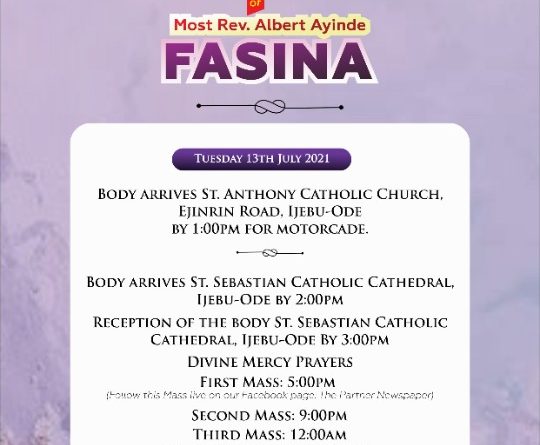
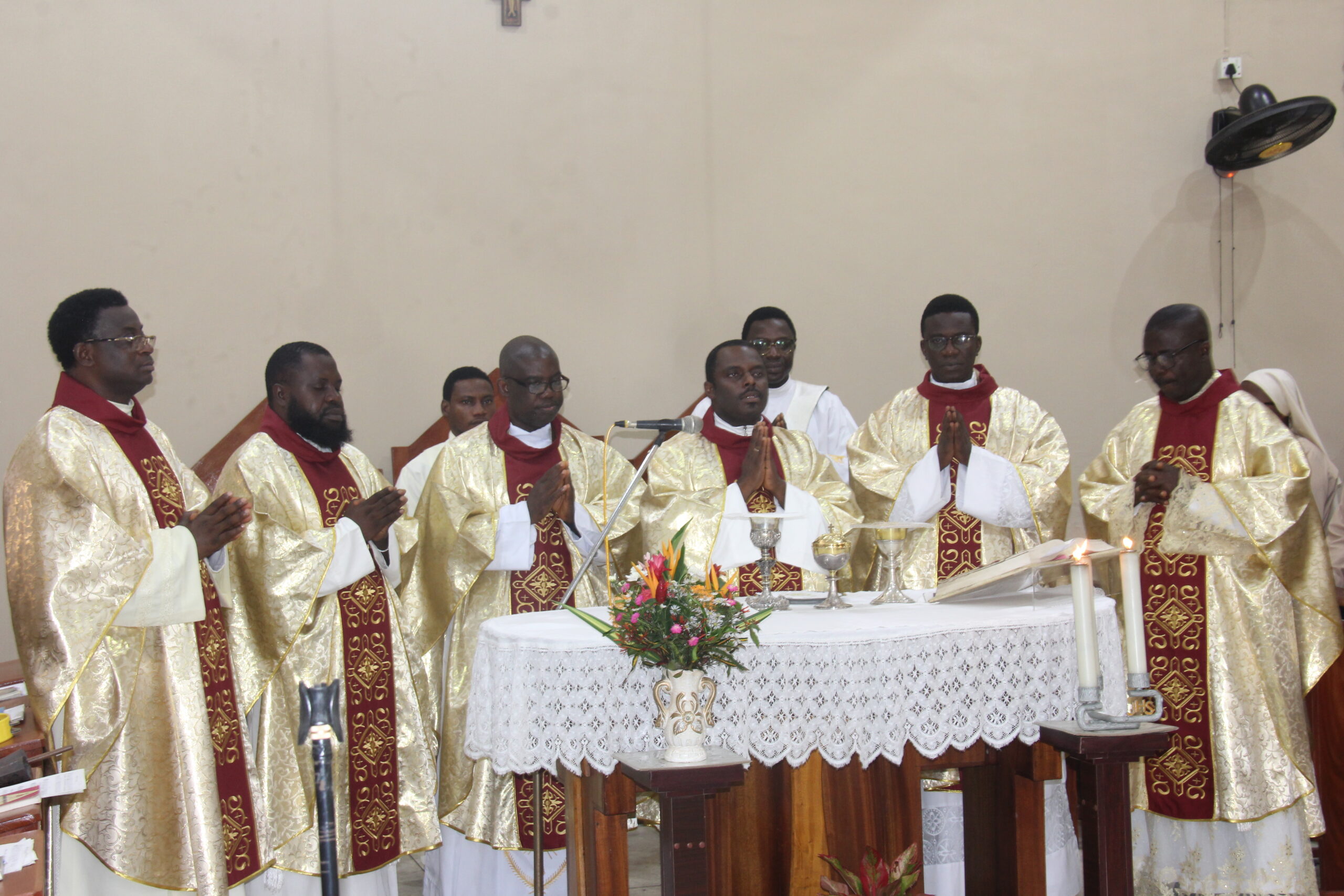
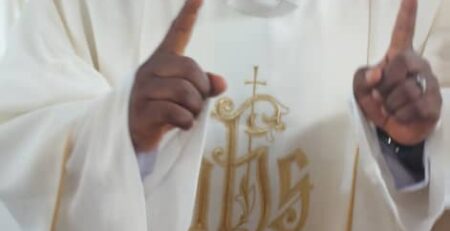
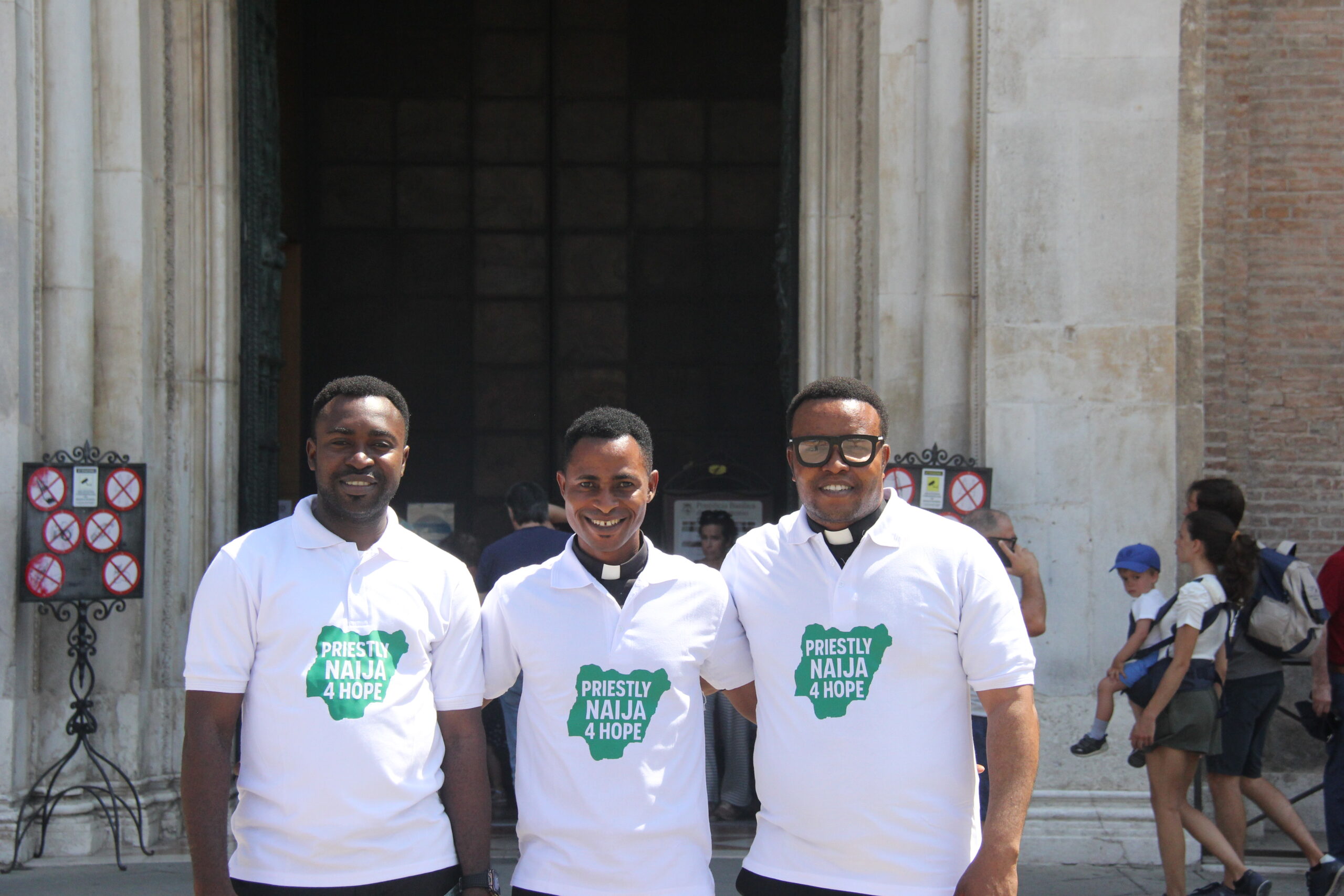
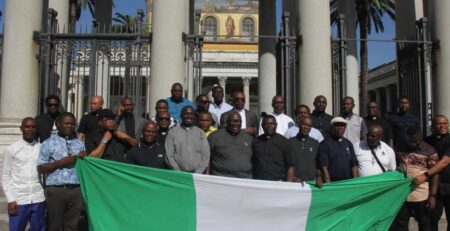
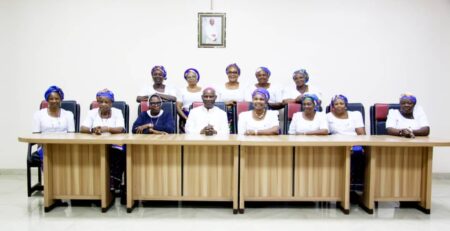
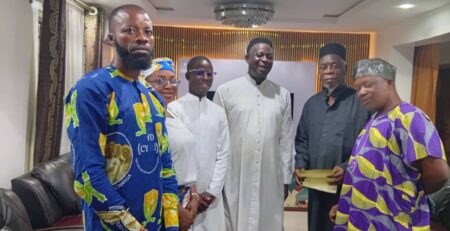
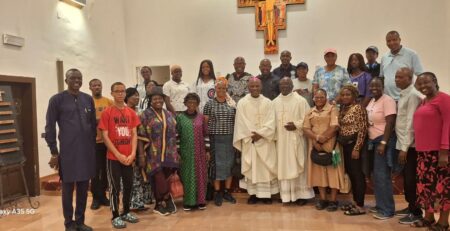
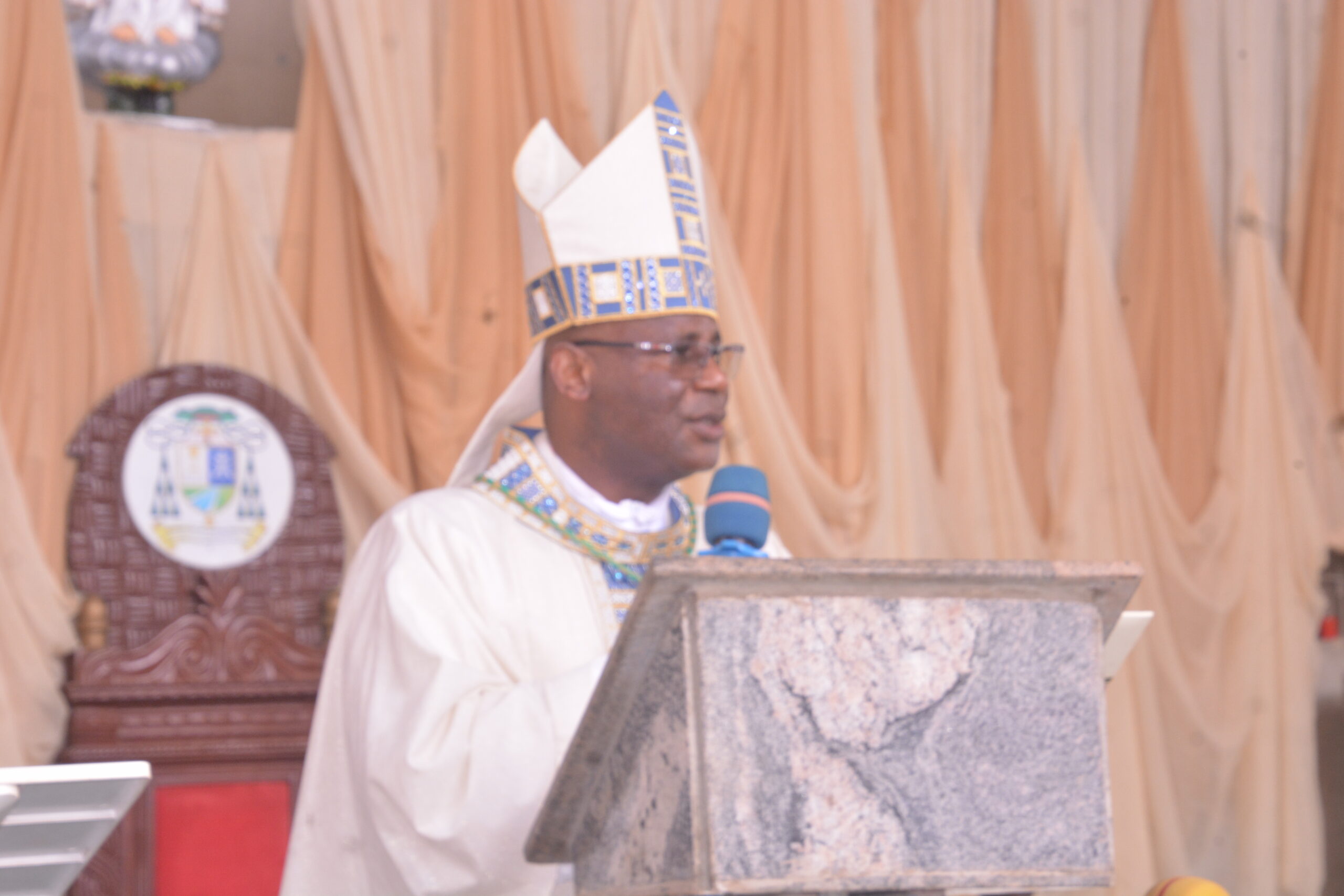

Leave a Reply